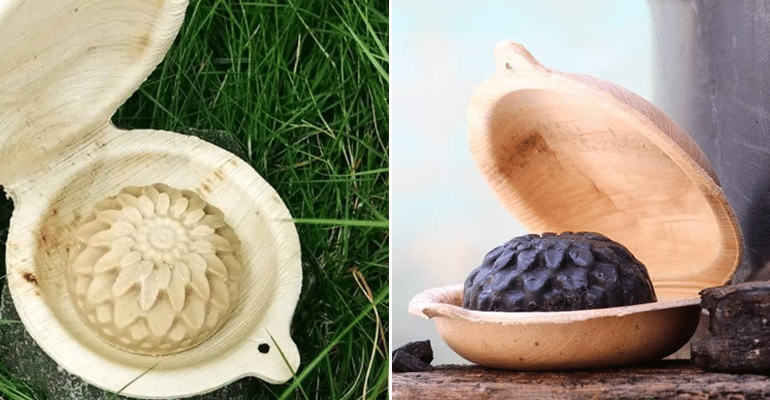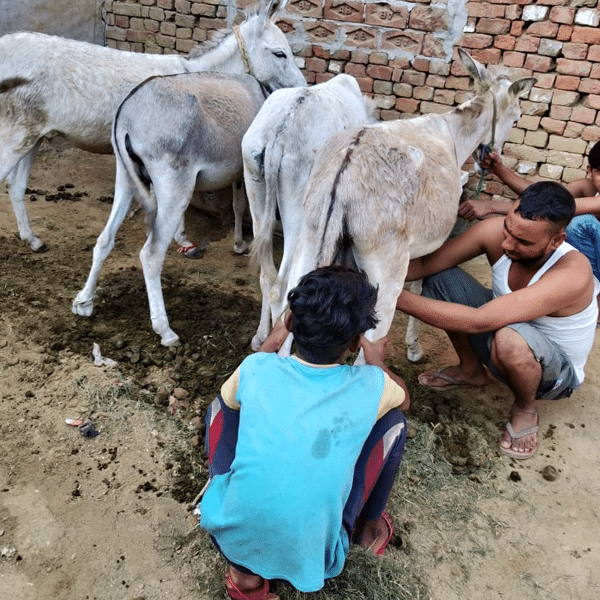Initially, you may scrunch up your face at the very thought of Donkey’s milk, but what if I tell you that Cleopatra, the Princess of Egypt and French military leader Napoleon Bonaparte’s sister used it to rejuvenate her skin. Does that make a difference now?
Life is fascinating when you look at the same thing from a different perspective. This 24-YO woman from Delhi is a beautiful example of how being humble and focussed takes a bit longer at times for people to notice what is going on in a little corner but eventually leads to success.
Pooja Kaul, the founder of Organiko-Beautifying Life, in a heart-warming conversation with Life Beyond Numbers shares why India is skeptical about using Donkey’s milk and what her initiative is all about.

As per 19th livestock Census (2012), the total equine population in India was about 1.14 million and donkeys constituted 28% of the total equines. Total donkey population in the country has decreased by 27.22% between 18th and 19th Livestock Census which is higher than the overall decrease (9.6%) in the equine population.
In India, a donkey has always been associated with dumbness and stupidity because of their stubborn behavior. Their reputation is such that it’s hard to make them do, what you want them to do. Therefore, the animal was not considered useful by their masters for their domestic tasks. Hence, while insulting someone in this country, you hear the term “tu gadha hain,” frequently, which when translated in English means, ‘you are stupid.’ This is the primary cause of why people are skeptical about having ass’ milk.
Organiko – the starting steps
A resident of Delhi, Pooja says, “Only my confidence was fixed, rest everything was unfixed when I started Organiko. Most of my family members are in the media industry and therefore, I wanted to do something different and join the social sector instead.”
You cannot create anything truly significant unless you are happy about doing it. While pursuing her masters in Social innovations and entrepreneurship from TISS, Tuljapur, Pooja came across the perilous condition of Lashkar community in Solapur, who are donkey owners and seasonal workers and therefore took it as her pilot project.
“While working on my project, I interacted with donkey owners of Lashkar community and found that they were seasonal workers and worked at construction sites. Most of the donkey owners earn 300-350rs per day and by the time monsoon arrives, they are again jobless. Therefore, they are employed for 4-5 months a year,” says Pooja.
She continues. “Most of them have an average of 6 family members, which makes it very difficult to meet the basic needs. As a result, they live like nomads and this affects the education of their children. The donkeys are mostly used to carry weight and previously they had no clue how much money that animal’s milk can fetch them.”
While one spoon of milk can cost between 150-200 rupees, a liter can fetch one around 2000-3000 rupees. She says, “India has a high donkey population but the problem is, like the donkey owners, other people across this country are too unaware of the benefits of donkey’s milk. I thought if we cannot make them drink it, why not create soaps with milk instead?”
Initially, when the project was in the nascent stage, under the guidance and mentorship of TISS Professor Neelam Yadava, last year in October, they made 300 luxury soaps priced at Rs.499 and within 2 months we were sold out. “When something like this happens, it was pretty much a validation that the idea was right. We started Organiko with Rs.28,000 pocket money and used online platforms to sell our products,” she says.
The component of compassion
What makes Organiko unique is that Pooja is nurturing the donkey rearers’ lives with an old component of compassion. “We buy milk from these donkey owners for Rs.2000 a liter and then pasteurize it to make soaps. The money they earn from this makes their life a lot less miserable. Apart from Solapur, we are now working with donkey farmers of Dasua village in Ghaziabad.”
Donkey’s milk contains vitamins and is rich in fatty acids. It is also beneficial to people who have sensitive skin conditions such as eczema, allergies and is also useful for asthma patients.
The milk is said to stay fresh for only 8-9 hours and therefore, after collecting the fresh milk, Pooja and her team pasteurizes it and turn it into soaps within 5-6 hours to keep the quality of the product intact.
“We are the first one to launch Donkey’s milk soap in India,” claims Pooja and their new range of luxury soaps include Donkey Milk Natural Ingredients Soap and Donkey Milk Charcoal & Honey Soap. Also, their popularity has found customers from the US, Zimbabwe, and Nigeria.

“People were interested in our products when they found out there is a social aspect attached to it. Till date, we have won 12 awards and we look forward to more,” she says to LBN.
Being a female entrepreneur is tough
Certain gender-specific roles are assigned by society and everyone expect you to abide by that. Pooja says, “In the beginning, it was very difficult for me to collect milk at 5 am by going to these villages in person. It felt very unsafe. Be it eve-teasing, inappropriate comments or calling me crazy names- I had to shed it off and walk away silently so that I can continue doing my work. All this, just for being a woman.”
After completing her masters in 2017, when Pooja went back to Delhi from Tuljapur, her life was anything but easy. “You have moments of doubt when you don’t have any backup plan in case the business fails. I saw my friends getting placed in reputed institutes and it was a difficult phase for me- what to choose and what to let go,” she recalls.
“I got an offer to work with Rajasthan Livelihood Mission. My family and friends persuaded me to join this because of the ‘government job’ tag. I did join it but resigned the same day as well because I knew this is not what I wanted to do for the rest of my life.”
Pooja again launched Organiko in August this year after making subtle changes in the packaging. Her classmate, Rishabh Yash Tomar was working with her since the beginning of the project and is now the co-founder of Organiko, who heads a team of 6 people. “I had to build everything from scratch when I shifted to Delhi and left my job but thankfully I have a team to work with which makes the work a lot easier,” she says.
“I am happy that my initiative is creating a positive impact on local communities. From the very beginning, our motive was the optimum use of untapped resources and helping people from rural communities simultaneously by employing them.”

Till date, Organiko has sold more than 1000 beauty products. Currently, they are working with 12 donkey owners on an average and by 2019, the team wishes to take it to another level by expanding their network and employing 50-95 donkey owners.
From the very core of her heart, Pooja believes that one cannot force anyone to do something good for society. “You should feel the urge to do it yourself, without having doubts or thinking about the consequences. Becoming selfless and doing something for a greater good is always soul-satisfying and is bound to create a positive shift in society.”
Are you game to try the Organiko soaps?

